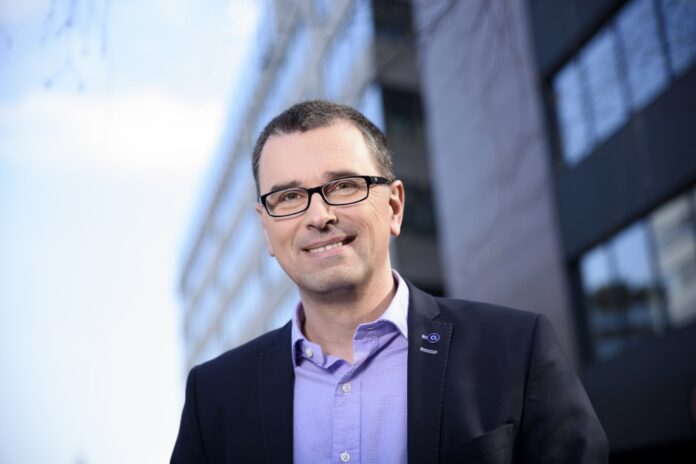Jan Hruška has worked at O2 Czech Republic for 16 years and as CTO for the last two and a half.
The operator has almost 8 million mobile and fixed access subscribers, which ranks it among the leaders for converged services in Europe. The majority of the company’s shares has been held by the Czech investment group PPF since January 2014.
What is the biggest issue on your mind right now?
One of toughest challenges ahead of us is how to efficiently modernise our IT architecture to support truly agile methods. We know what should be done technically, but the biggest issues are how to deliver the transformation alongside competing commercial priorities and how to build a positive business case with reasonably short payback.
Which person most influenced your career?
My first boss in a small consulting company, which I joined right after university, many years ago. He provided me with the core wisdom of personal energy management: focus on stuff that you can really influence, don’t waste your time on things you cannot change, and always make sure that you understand which is which.
There are many versions of this, but probably the first one was Aeschylus, the ancient Greek who was the first to write tragedies and lived about 500 BC.
What is the most important lesson you have learned professionally?
It is from Antoine de Saint-Exupéry’s The Little Prince. When the Prince visits a planet with only a King living on it, the King asks an open or rhetorical question along the lines of, “If the ruler orders his subordinate to do something that the subordinate cannot accomplish, whose fault is it?”
What’s the biggest obstacle to 5G’s success and how will you overcome it?
Establishing a positive business case. Many slides have been produced on the subject of B2B use cases for 5G, but none is close to being seen in reality. I believe the right approach is not to rush; we experienced a similar situation with 4G eight years ago.
One possible starting point is hotspot coverage for fixed wireless access, in high capacity bands (that is, C-band and above), to complement fibre to the premises or cabinet (FTTx) and DSL internet connections where “wired” connectivity is too expensive or takes too long a time to deploy.
How you think telecoms will change after the Covid-19 pandemic?
I consider the last three months as an extraordinary lesson that impacted our professional and private life so much that they are not going to be the same anymore. Telecoms proved their essential role in digital age – the need for quality home internet connection to enable families’ remote working, learning and entertainment. We also experienced growth in mobile data consumption, and even mobile and landline calling.
Where we have to change so we can face this kind of challenge even better is our distribution. Our commercial performance still is mostly driven by physical shops that were paralysed by significant decline in customer traffic.
We have learnt how to connect shop assistants to telemarketing campaigns and also increased our digital transactions. Even B2B interactions of sales representatives via online video calls were eventually more productive. All this accelerated our digital transformation.
What do you consider your greatest professional achievement?
The best – the good stuff – is whenever you build an environment that supports innovation, where people really want to contribute, so no push is needed – you can just inspire and help. Maybe the greatest one is yet to come!
What do you see as the biggest challenge facing the telecoms industry?
Flat data plans. We are lucky to run business where demand is growing in double digits – I mean for data consumption – but customers expect to pay the same or less, so we have to keep thinking about how to increase the capacity in our networks, without spending more money, to maintain our margins. And the game keeps running: after you accomplish one level, there is always the next one ahead.
What do you like to do when you’re not working?
Men approaching 50 usually buy motorbikes, run marathons or change their spouse. I opted for running marathons.



